A 10-strong panel of industry leaders discuss what can be done to help the thousands of freelancers out of work – from government aid to greater industry collaboration and changes in commissioning strategy
Roundtable participants

Freelance series producer and founder
#Off AirNightmare campaign
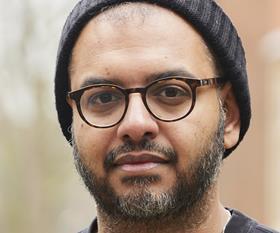
Series producer and chair
Coalition for Change
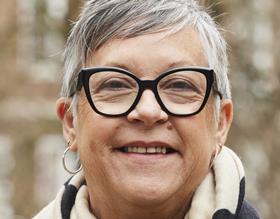
Head
Bectu
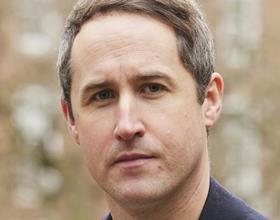
Chief operating officer
BBC
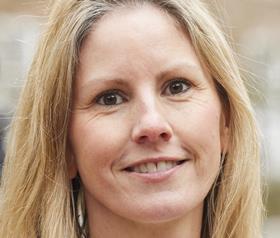
Managing director
Talented People
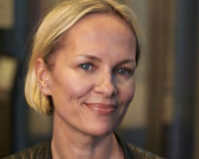
Head of talent
Fremantle
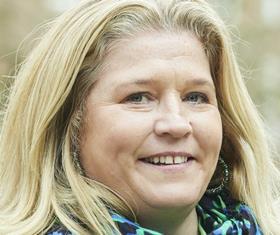
Freelance executive producer

Chief creative officer
UKTV
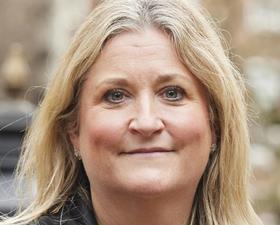
Bella Lambourne
Director of human resources and operations
Banijay
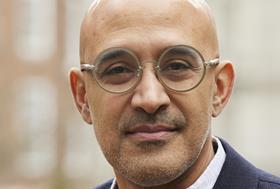
Chief executive
Film and TV Charity
The ad market slump and commissioning slowdown, a frozen licence fee, rampant production inflation, plus strikes and streamer cuts in the US, have in the past year created a perfect storm that has left tens of thousands of freelancers out of work. Broadcast convened a roundtable discussion to explore what can be done to ease the ongoing crisis.
Michelle Woods was a staff executive producer at Youngest Media before the company was forced to close at the start of 2023. Since then, she’s been freelance.
“Last year, I ended up doing 50 days across the year – none of that was as an exec,” she says.
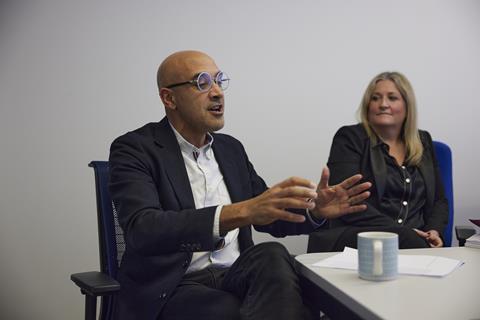
Friends in similar positions have been driving food delivery vans and labouring to make ends meet. They are “really, really struggling”, she says. “It’s been pretty bleak.”
It’s a situation many will recognise. Freelance series producer Dominic Pisani founded SPEX UK, a WhatsApp group with about 350 members (specifically targeted at series and exec producers), and #Off AirNightmare, which specifically campaigns for freelancers to be supported during the downturn. He’s heard many similar stories, with at least 10 people messaging him to say they are taking on long-term jobs outside of the industry.
Vic Roye, head of talent at Fremantle, agrees: “Even since coming back from Christmas, it’s noticeable how many more people aren’t available to us [because they’ve left the industry].”
A financial resilience survey of more than 2,000 TV workers conducted by the Film and TV Charity (see box, below) found that almost half of respondents were having difficulty managing financially and a quarter had struggled to pay their mortgage or rent in the past year.
“It’s not just an anecdotal thing,” says Film and TV Charity (FTVC) chief executive Marcus Ryder.
Long-term impact
The flight from the industry will have long-term effects, warns Talented People managing director Kimberly Godbolt.
“Every hiring manager and those in either creative or production management are used to being inundated with CVs,” she says. “They’ll now have to work harder, which is not necessarily a terrible thing, because they’ll need to recruit a bit more responsibly. But equally, they can’t expect to have the best people available tomorrow any more.”
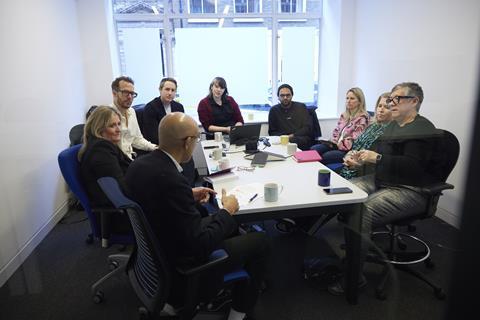
Banijay director of human resources and operations Bella Lambourne adds: “It’s also going to undo the small amount of good work we’ve done in terms of attracting more diverse talent into the industry. People are going to be much more reluctant to enter the industry if they hear these stories of economic uncertainty.”
Smaller indies in particular are having “a dreadful time”, Godbolt says: “They’ve got freelancers asking them to help financially or for just a few days’ work when staff are on half salary because the company is having its own cashflow drama.”
The question, Lambourne says, is whether the uncertainty of the past year represents a seismic shift in the industry or a significant but temporary setback.
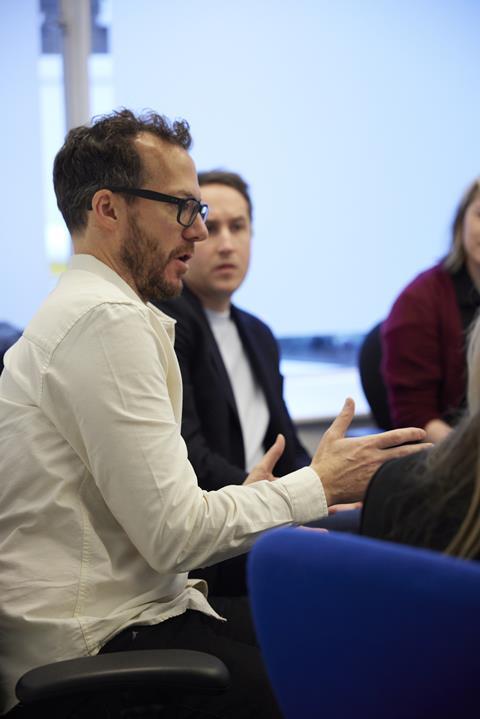
UKTV chief creative officer Richard Watsham acknowledges that fluctuations in commissioning volumes happen on an annual basis, but argues that ad revenue is likely to continue to drop in the longer term. “So it’s both a short, sharp shock that is creating massive problems and a systemic issue,” he says.
BBC chief operating officer David Pembrey describes the current situation as “a really difficult cocktail for our industry, which is right-sizing itself back to a sustainable level of business” against a gloomy economic backdrop.
“We have to think a little bit longer term about where we’re trying to get to, and how we retain the talent for that,” he says. “It feels like it’s not going to get better quickly.
Part of that is because the BBC’s income took a hit when the government reneged on its promise to increase the BBC licence fee in line with inflation, leaving a £400m shortfall.
“Can we really sustain an industry where people have to rely on charity to get through a year?”
Philippa Childs
Ryder says the number of people applying for FTVC’s hardship fund increased dramatically during the writers and actors’ strikes in the US, and has remained 50% higher than in 2022 since the strikes ended.
Philippa Childs, head of the TV union Bectu, adds: “Can we really sustain an industry where people have to rely on charity to get through a year? Surely, as an industry, we have to recognise that’s just not a model we can support in the longer term.”
A step behind
Adeel Amini, series producer and chair of freelancer campaign group The Coalition for Change, argues that the industry’s approach to freelancers has been unsustainable for years.
“The sector has historically worked in silos and been reactive rather than proactive, whether it was Covid or the talent crunch or what we’re going through right now – it’s always a step behind what’s coming,” he says.
“Freelancers don’t figure in broadcasters’ business models or projections. Everyone feels we aren’t their problem”
Adeel Amini
“When broadcasters look at their business models and projections, I don’t feel like freelancers figure in that whatsoever. We are left behind – everyone feels like freelancers aren’t their problem, because they’re not employing those people directly.
“My worry is that another generation of freelancers might come in and go through the same thing, because we’ve not adapted our practices.”
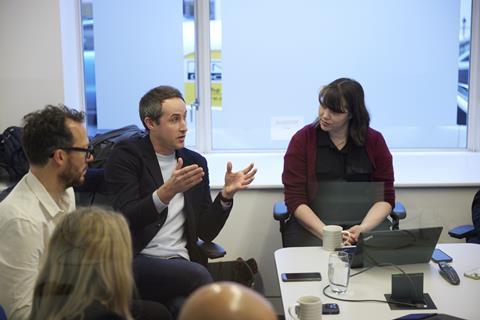
Pembrey adds: “The industry has had a very successful model based upon casualisation of the workforce – it’s very fluid, freelance, highly specialised – which worked while there were lots of opportunities.
“We’re entering a period where it’s different, so the model needs to change to reduce that imbalance between broadcasters, producers and the talent themselves.”
The solutions need to start with communication and transparency from the broadcasters, he says.
Pisani agrees, adding “Clarity about where we’re at, whether it be positive or negative, puts power back in the hands of the freelancer to decide if they want to try to stick it out. Of course we want to keep all the best people but, realistically, the market is saying we can’t retain everyone.
“At the moment, there’s a limbo. People don’t know whether they should leave or not because there’s always the suggestion that things might get better.”
“The creative industries contributed £109bn to the economy last year – if we are struggling, it will have devastating effects”
Marcus Ryder
Ryder argues that any other British industry going through a similar transition would be likely to receive public money to support it through the change.
“The creative industries contributed £109bn to the economy last year and it’s a key component to attracting foreign investment from large investors from the US and elsewhere – so if we’re struggling, it will have devastating effects on the whole economy.”
Beyond that, he says, a vibrant TV sector is vital to the UK’s cultural life and even its democracy, pointing to the impact of ITV’s Mr Bates Vs The Post Office (ITVS/Little Gem), which helped to speed up the resolution of a major miscarriage of justice.
Childs says part of the issue is a lack of understanding in government and opposition parties about both the structure of freelancing in TV – “they understand the Uber model or being self-employed” – and the scale of the problem.
Banging the drum
She urges anyone having any sort of contact with government to “keep banging the drum” for the industry.
But Godbolt doubts whether it’s realistic to expect government help. “You see them bail out the banks and the motor industry – so I suppose I don’t see why not – but it feels almost far-fetched. We’re used to just figuring it out ourselves and cracking on.”
“There is definitely going to be enough work globally, so we need to bring more of that work to this country”
Richard Watsham
One area where both Pembrey and Watsham say the government could help is through an increase in tax credits, particularly to attract international productions to the UK.
“We need to be working harder to attract more money from other countries,” Watsham says. “We’ve got brilliant skills in this country, and there is definitely going to be enough work globally, so we need to bring more of that work here.”
And, he says, any response to the crisis needs to be co-ordinated across the industry. “There is a danger at the moment of a kind of arms race around initiatives, with different broadcasters working separately,” he says. “At the Edinburgh TV Festival, there was a panel where one broadcaster said, ‘We’ve got 30 initiatives’, and another said, ‘We’ve got 34’ – but I reckon most of the industry has no idea about them.
“We need broadcasters to work together more effectively, to pool resources in a way that is greater than the sum of its parts, rather than duplicating work in tiny little bits here and there and competing with each other. Then we can definitely effect greater change.”
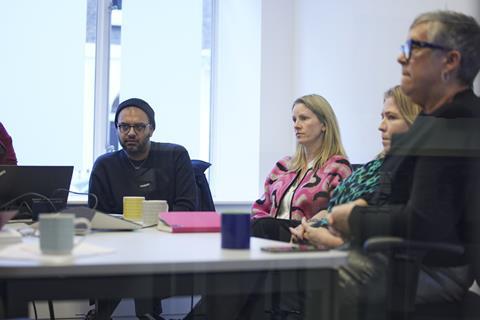
Pembrey agrees, adding that super-indies and streamers need to be included: “They’ve brought massive things to this country’s industry, but what is their role in the UK ecology alongside the PSBs? What more are we asking of those global streamers?”
Childs says Bectu is exploring the creation of a “light-touch, pan-industry body where people can register, meet each other, find jobs, get pensions advice, and which the broadcasters could put money into. It could start quite small but also do much more positive things and make structural changes.”
Ryder acknowledges this would be “natural territory” for the FTVC to play at least a supporting role.
Amini is quick to point out that the union already offers a body that can negotiate on behalf of freelancers – although he acknowledges that, as Pisani points out, the cost of union membership can be difficult to meet when you’re literally worrying about putting food on the table.
Freelancer hubs
Freelancers also need to be able to connect with each other, Amini says. As part of Coalition for Change’s work, he and Godbolt have set up freelancer hubs – events where freelancers can come together to network, search for jobs and co-work in the same physical space.
“Historically, we’ve been very fragmented,” he says. “I know it’s a small win, but there’s a huge cultural piece around keeping the people connected at the moment.”
“We’ve been treating each other as competition but we just need to get together, not undercut each other on rates and mentally support each other.”
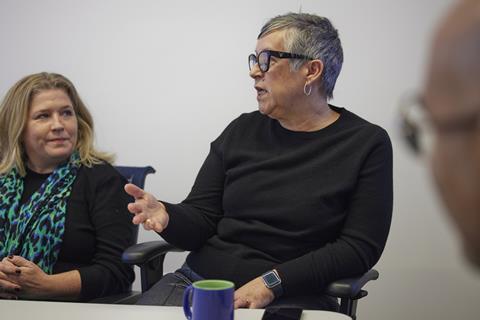
Both Childs and Pembrey point to the need to look at the models used in other countries with large TV industries.
Childs cites the example of the French system, “where if you work for so long or get so many credits in the creative industries, you can then draw down benefits in times when you’re not earning”.
Pembrey says: “Structurally, we need to look at the balance between broadcasters and investors and production companies, and then the talent, and ask whether we’ve got the right structure to share the risks and rewards of a new world order – are there other models that might allow the rewards to be shared more widely with the talent base, and that might be more fluid and flexible?”
Lower-budget shows
There are also steps broadcasters could take individually, our panellists say. Pisani argues that rather than pouring money into a single, high-end show, commissioners should be looking to commission more lower-budget shows, ultimately leading to more people being employed overall.
“It’s possible to make brilliant, creative, world-beating and award-winning shows that are Waitrose quality on Lidl prices,” he says, pointing to his experiences making low-cost series Celebs On The Farm and Celebs On The Ranch for Channel 5.
Watsham responds: “What I’m hearing is a very sensible suggestion, which is ‘can we commission better?’
“I would say two things: one, there is already a reduction in super-high-tariff dramas, even from the streamers. And two, audiences want a varied set of content and we’re trying to do certain jobs with different types of content. So I like the idea of spending less money on brilliant shows – but it’s difficult.”
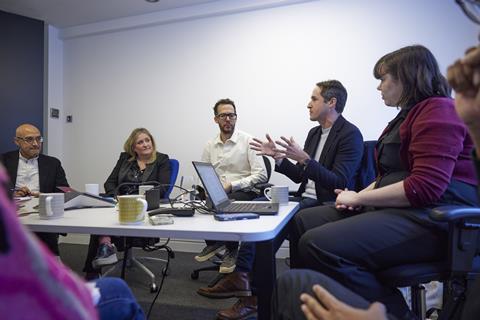
Godbolt has a different take: “Mid-level content is falling away and I don’t think we’re going to get that back any time soon – if ever, unfortunately.”
Roye points out that where long-running shows are consistent performers, broadcasters should consider offering multi-year recommissioning deals “so that we can give a longer contract, we can grow and nurture talent in that time” – something with which Lambourne agrees.
As Godbolt and Childs point out, the market is unlikely to return to the peak TV years. “I think there probably will be a bit less programming than we have had previously,” Godbolt says. “But 2023 was the overcorrection and we are going to come back up to an extent – plus there will be more opportunities in digital, branded and so on. People are always going to want content – but this is a big adjustment.”
Similarly, Lambourne argues that the workforce needs to be realistic about the opportunities presented by the move from linear to digital, and the pressure on budgets.
“We need to respond to that change in the market by being more flexible about what skills we have and being open to taking on slightly different opportunities,” she says. “And maybe the answer is that it isn’t a disaster to be more flexible and have a slightly more portfolio approach, if there is this long-term change.”
Ultimately, Amini says, whatever happens needs to happen quickly: “There’s a sense of urgency missing – if we start the process of making changes at the end of this year, the people who are being affected are not going to still be in the industry.”
SURVEY FINDINGS
A Film and TV Charity financial resilience survey of more than 2,000 TV workers found:
- 45% of respondents said they were having difficulty managing financially
- 25% said they had “very much struggled” to pay their mortgages or rent over the past six months
- 42% had less than £1,000 in savings (which may mean they will struggle to pay tax for the year)
The full results of the survey will be published on 30 January
For more on the freelancer crisis, read these opinion pieces from Talent Manager’s Sarah Lee and ITN Production’s Ian Rumsey:
Sarah Lee: Signs of recovery in the TV jobs market, but industry must collaborate
Ian Rumsey: Collective effort is needed to weather the storm


























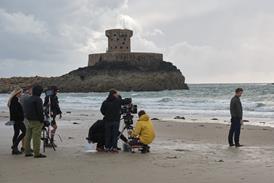
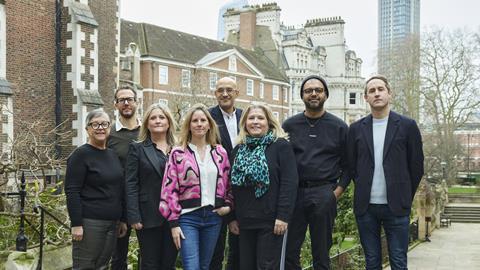






No comments yet